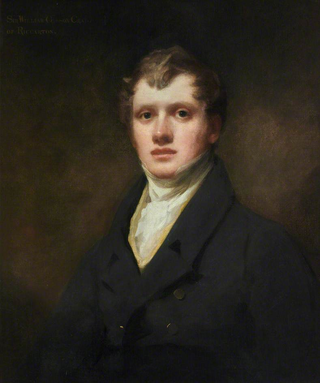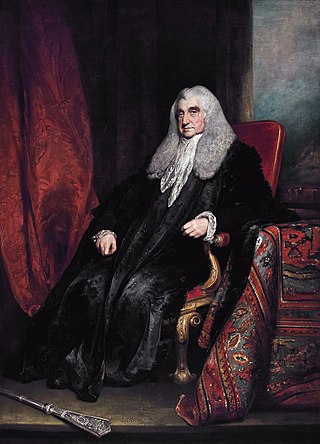Career
In 1795, he was MP for St. Mawes, and in the elections of 1796 and 1801 was returned for Lostwithiel. These were both rotten boroughs in Cornwall. He was elected a Fellow of the Royal Society in 1799 [3] He became sworn as a Privy Counsellor in 1801, [4] and left Parliament as a diplomat, as Envoy to the court of Naples. [5]
In 1803, he became British Ambassador to the Ottoman Empire. [6] Appointed by the Levant Company on 14 January 1803, he arrived at the Dardanelles the following May. He was there for less than a year and then he returned to England in 1804. From 1806 to 1809 he served as Envoy to the Court of Naples for a second time. He was knighted in 1813 or 1814. [7]
The Argument of Academical Questions
The title of Drummond's book refers to the later Platonic Academy, which was, in fact, not so much Platonist as Sceptical in orientation, based on the work of Pyrrho the Sceptic and later followers of Pyrrho such as Carneades. Academical Questions is a work in the Sceptic tradition, in this case influenced by the Sceptical Scottish philosopher David Hume.
According to C.E. Pulos's 1954 book, The Deep Truth: A Study of Shelley's Scepticism, Drummond uses Sceptical Humean ideas in an attempt to refute the British philosophy predominant in his day, the Common Sense ideas of Thomas Reid and his followers. These had been enunciated first in Reid's An Enquiry into the Human Mind (1765). The quotation, "He, who will not reason is a bigot; he who cannot, is a fool; and he, who dares not, is a slave" has been credited to Drummond. [8]

James Abercromby, 1st Baron Dunfermline FRSE, was a British barrister and Whig politician. He served as Speaker of the House of Commons between 1835 and 1839.

Sir William Gibson Craig, 2nd Baronet, PC, FRSE, was a Scottish advocate and politician, who held the important position of Lord Clerk Register for Scotland.

William Scott, 1st Baron Stowell was an English judge and jurist. He served as Judge of the High Court of Admiralty from 1798 to 1828.

Sir William Arbuthnot, 1st Baronet of Edinburgh FRSE was a Scottish landowner and politician. He served as Lord Provost of Edinburgh and Lord Lieutenant of the City of Edinburgh.
Sir William Gordon Gordon-Cumming, 2nd Baronet of Altyre and Gordonstoun FRSE, was a Scottish Member of Parliament.

Sylvester Douglas, 1st Baron Glenbervie, PC, KC, FRS, FRSE, FSA was a British lawyer, politician and diarist. He was Chief Secretary for Ireland between 1793 and 1794.

Sir Alexander Crichton was a Scottish physician and author.

Sir Robert Pullar was a Scottish Liberal Party politician in the United Kingdom.

Dr Alexander Hunter was a Scottish physician, known also as a writer and editor.

William Hamilton Drummond, D.D. was an Irish poet, animal rights writer and controversialist.
George Townsend was an English priest and author.

Sir James Montgomery, 2nd Baronet Stanhope, FRSE was a Scottish politician and lawyer who served as Lord Advocate of Scotland 1804 to 1806.

George D'Oyly (1778–1846) was an English cleric and academic, theologian and biographer.
Events from the year 1828 in Scotland.

Sir Henry Jardine of Harwood WS FRSE was a solicitor, antiquarian and a founder member of the Bannatyne Club in 1823, with his friend Sir Walter Scott.
Dr James Crawford Gregory FRSE (1801-1832) was a Scottish physician and part of the Gregory family of notable physicians and scientists. His middle name is sometimes spelled as Craufurd.
Colin Mackenzie of Portmore WS FRSE (1770-1830) was a Scottish lawyer and companion of Sir Walter Scott.
Dr Thomas Spens FRSE (1764–1842) was an 18th/19th century Scottish physician who served as President of the Royal College of Physicians of Edinburgh from 1803 to 1806.
This page is based on this
Wikipedia article Text is available under the
CC BY-SA 4.0 license; additional terms may apply.
Images, videos and audio are available under their respective licenses.











